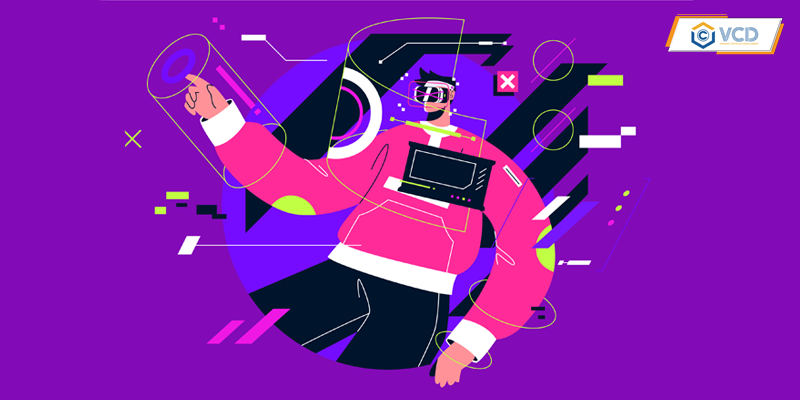Music copyright between creators and artificial intelligence (AI)
Copyright conflicts between creators and artificial intelligence (AI) are still a hot issue in the music industry. Currently, the use of generative AI services is spreading and is increasingly being applied to content creation. This makes many people afraid of copyright conflicts based on the premise of human musical creativity. VCD’s article below “Music copyright between creators and artificial intelligence (AI)” will help you better understand this issue.
1. Music copyright between creators and artificial intelligence AI
According to the provisions of Article 10 of Decree No. 22/2018/ND-CP, a musical work is understood as a work expressed in the form of notes in music or other musical characters or shaped on a recording. Audio or video recording with or without lyrics, regardless of performance or non-performance. Therefore, music copyright is understood as the author’s right to the work expressed in the form of notes in music or other musical characters or shaped on audio or video recordings with or without music. lyrics, regardless of performance or non-performance, from when the author creates the work.
A musical creator (human) is an individual or group of people involved in the process of composing, producing, and performing musical works. Traditionally, ownership of music copyright belongs to the people who are the musicians, producers, or organizations that created the musical work.
AI is the simulation of intelligent human processes using machines, especially computer systems. Specific applications of AI include expert systems, natural language processing, speech recognition, and machine vision. Simply put, AI is a product created by humans, aimed at supporting and answering human questions.
Music copyright disputes between creators and artificial intelligence (AI) are legal and ethical conflicts related to ownership, use rights, and financial interests in musical works. created by AI technology. These disputes arise from determining who is the legal copyright owner of these works and who is entitled to related rights when AI is involved in the music creation process.

2. Copyright disputes between creators and artificial intelligence (AI) today
Most recently on June 24, 2024, Sony Music Entertainment, Warner Records, Capitol Records, and other record labels filed copyright infringement lawsuits in federal courts in Boston and New York, claiming that “Suno and Udio copied artists’ life’s work and exploited it for profit without consent or royalties” alleges that these music AI startups are illegally exploiting recorded works by many artists, from Chuck Berry to Mariah Carey.
The lawsuit accuses the software of “stealing” songs to create similar tunes, seeking $150,000 in damages per composition. If convicted, the compensation that Suno and Udio must pay could reach a huge amount. This tough move clearly shows the music industry’s determination to establish a clear legal framework for AI, while also deterring other companies that intend to train AI models without prior consent.
The Recording Industry Association of America (RIAA) is the initiator of these lawsuits, intending to assert that “there are no exceptions for AI technology to copyright law and AI companies cannot stand outside of it.” law”.
Suno launched its first product in 2023 and says more than 10 million people have used its tools to create music. The company has a partnership with Microsoft, currently charges a monthly fee for its service, and recently announced it raised $125 million from investors. Meanwhile, New York-based Udio, backed by prominent venture capitalists like Andreessen Horowitz, went public in April 2024 and quickly gained notoriety as the tool used to create BBL Drizzy – a “parody” song related to the conflict between two famous rappers Kendrick Lamar and Drake.
RIAA affirmed that the music created by the software of these two companies is incredibly similar to the original work, proving that they were trained with copyrighted music. According to The Wall Street Journal, AI companies have created products identical to My Girl by The Temptations, American Idiot by Green Day, All I Want for Christmas Is You by Mariah Carey… and many other famous songs. The software can even create “fake” singing voices that are indistinguishable from the real voices of artists such as Lin-Manuel Miranda, Bruce Springsteen, Michael Jackson, and ABBA…
Although not opposed to AI learning from copyrighted works, the RIAA believes that using data without a license and consent from the copyright owner is a violation of the law, because the record label (and the artists themselves) don’t receive any of the profits. AI cannot justify not following the “rules of the game”, and large-scale theft of recordings is already threatening “the entire music ecosystem”.
The recording industry is working to build cooperation agreements with AI companies, allowing them to use music data legally and ensuring benefits for both sides. A typical example is the agreement between Universal and SoundLabs, which allows SoundLabs to create vocal models while still ensuring ownership and control of the final product. Universal also partnered with YouTube on a licensing agreement and paid royalties for AI-generated content.
In conclusion, VCD sees that the rapid development of artificial intelligence (AI) in the field of music and art poses many new challenges regarding copyright. Currently, current copyright laws are not flexible enough and cannot be directly applied to musical works created or developed by AI. Organizations and lawmakers must consider and introduce regulations to ensure the rights of artists and music producers and encourage the creativity and development of AI in this field. new.
